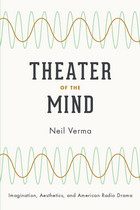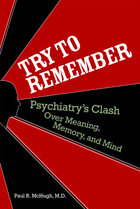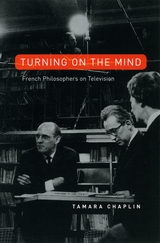4 start with T start with T

"This is a unique addition to anthropological literature. . . . No review could substitute for reading it."—Margaret Mead, American Anthropologist

For generations, fans and critics have characterized classic American radio drama as a “theater of the mind.” This book unpacks that characterization by recasting the radio play as an aesthetic object within its unique historical context. In Theater of the Mind, Neil Verma applies an array of critical methods to more than six thousand recordings to produce a vivid new account of radio drama from the Depression to the Cold War.
In this sweeping exploration of dramatic conventions, Verma investigates legendary dramas by the likes of Norman Corwin, Lucille Fletcher, and Wyllis Cooper on key programs ranging from The Columbia Workshop, The Mercury Theater on the Air, and Cavalcade of America to Lights Out!, Suspense, and Dragnet to reveal how these programs promoted and evolved a series of models of the imagination.
With close readings of individual sound effects and charts of broad trends among formats, Verma not only gives us a new account of the most flourishing form of genre fiction in the mid-twentieth century but also presents a powerful case for the central place of the aesthetics of sound in the history of modern experience.

In this thought-provoking account, McHugh explains why trendy diagnoses and misguided treatments have repeatedly taken over psychotherapy. He recounts his participation in court battles that erupted over diagnoses of recovered memories and the frequent companion diagnoses of multiple-personality disorders. He also warns that diagnoses of post-traumatic stress disorder today may be perpetuating a similar misdirection, thus exacerbating the patients’ suffering. He argues that both the public and psychiatric professionals must raise their standards for psychotherapy, in order to ensure that the incorrect designation of memory as the root cause of disorders does not occur again. Psychotherapy, McHugh ultimately shows, is a valuable healing method—and at the very least an important adjunct treatment—to the numerous psychopharmaceuticals that flood the drug market today.
An urgent call to arms for patients and therapists alike, Try to Remember delineates the difference between good and bad psychiatry and challenges us to reconsider psychotherapy as the most effective way to heal troubled minds.

READERS
Browse our collection.
PUBLISHERS
See BiblioVault's publisher services.
STUDENT SERVICES
Files for college accessibility offices.
UChicago Accessibility Resources
home | accessibility | search | about | contact us
BiblioVault ® 2001 - 2024
The University of Chicago Press









